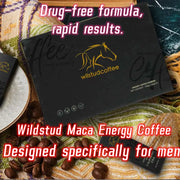L-Carnitine Encyclopedia
L-carnitine, also known as levocarnitine, botulinum toxin or vitamin BT, is a kind of amino acid that promotes the conversion of fat into energy, and has no adverse reactions to the human body. It widely exists in the body, carnitine belongs to vitamins, is the body's own synthesis of nutrients. L-Carnitine is a natural, intrinsic substance necessary for body fat metabolism. In the popular low-fat high-carb diet and high-stress work environment, the daily intake of L-carnitine from the diet is less than 50 mg, and in order to achieve an ideal health state, the average adult’s daily diet should not be less than 500 mg mg of carnitine, in fact, only relying on human body synthesis and common dietary sources can not achieve the optimal level of carnitine intake.

In recent years, as a new type of functional food additive, L-carnitine has become popular in Europe, America and Japan. Due to its safety and good stability, L-carnitine as a human nutrition enhancer and supplement is being paid attention to by relevant parties, and has been widely used, and is generally accepted by countries all over the world. L-carnitine is mainly added to food and beverages for athletes, high-intensity workers, or food for obese people. It has a very broad market prospect. Now let's talk about L-carnitine from the aspects we are most concerned about.
Chemical Structure of L-Carnitine
Carnitine has L-type, D-type and DL-type, but carnitine has two forms of L-type and D-type in water, only L-type exists in nature, and only L-type exists in mammals. Only L-carnitine has biological activity, D-carnitine and D-L-carnitine are completely inactive, and they are competitive inhibitors of L-carnitine, inhibiting the utilization of L-carnitine, so the commonly referred to carnitines are Refers to L-carnitine.
L-carnitine is a carnitine quaternary amine (3-hydroxy-a-trimethyl-aminobutyric acid), the chemical name is (3R)-(-)-3-hydroxy-4-trimethylammonium butyric acid (β-hydroxy -γ-aminobutyric acid) [9], English name is (3R) -(-) -3-hy-droxy-4- (trimethylammonio) butanoate, chemical formula C7H15O3N, molecular weight 162.2, melting point 210-212 ℃, Optical rotation [α] D = - 29. 5 ~ 32. 00 (200 ℃, 0.1, HO).
Three functions of L-carnitine
1. For weight loss, bodybuilding and other health food
With the improvement of people's living standards, material life has been greatly improved, leading to an increase in the number of obese people, and a series of "rich man's disease" problems caused by obesity have brought great pressure to my country's current medical care. At present, obesity has become one of the most important medical and public health problems in developed countries. According to reports, the prevalence of obesity in American children is 5% to 25%.
Research studies have shown that the fatter a person is, the more fat they have, the less L-carnitine in the body, which shows that obese people should supplement L-carnitine more. Studies have shown that the mixture of lotus leaf extract and L-carnitine can reduce the accumulation of triacylglycerol in human fat cells, and this mixture has the potential to treat obesity-related diseases; the formula of konjac powder plus L-carnitine was used in obese patients Dietary intervention also has a good weight loss effect.

- carnitine is an excellent weight-loss active substance and a normal component of the diet. Its main function is to help long-chain fatty acids to undergo β-oxidation of fatty acids, which is beneficial to the body’s utilization of fat, including burning excess fat for energy. It can be used as functional food for weight loss, and has no side effects on the body. Supplementing L-carnitine while paying attention to strengthening exercise can make the fat accumulated in the body be oxidized and utilized, so as to achieve the effect of weight loss. It can reduce body weight, reduce body fat content, and has a weight loss effect, and is an ideal weight loss method without dieting, anorexia, fatigue, and diarrhea.
2. Nutritional supplements for athletes
L-carnitine is a normal component of the diet, and its main function is to help long-chain fatty acids to undergo β-oxidation of fatty acids, which is beneficial to the utilization of fat by the human body. After physical exercise, the concentration of free carnitine in human muscle tissue decreases by about 20%, which can be improved by supplementing exogenous L-carnitine, thereby promoting the body's fat oxidation capacity and improving sports performance. L-carnitine is an important supplementary nutrient for athletes. During exercise, the content of L-carnitine in the muscles increases and transforms it, which can maximize the oxygen uptake of the human body and enable the full exertion of physical fitness.
At present, there are athlete drinks with L-carnitine as the physiologically active ingredient at home and abroad. Daily intake of L-carnitine is 7.5 to 10 g, which is quite effective in enhancing physical strength, anti-fatigue ability, tolerance and enhancing explosive power. Effect. In the domestic sports industry, many people have begun to pay attention to supplementing L-carnitine, which is mainly used for reducing fat, enhancing endurance and anti-fatigue. If you want to increase endurance with carnitine, you should start taking it continuously several weeks before the competition
3. Anti-fatigue function
Lactic acid is the end product of anaerobic glycolysis in the body and is an important cause of body fatigue. The extent to which lactic acid accumulates in the body depends on the rate at which lactic acid production exceeds clearance. L-carnitine can significantly prolong the weight-bearing swimming time of mice, and has anti-fatigue effect, and its anti-fatigue mechanism is mainly related to the fact that L-carnitine can increase muscle glycoside reserves, reduce muscle glycogen consumption after exercise, inhibit lactic acid production, and accelerate lactic acid production. related to blood urea nitrogen clearance. L-carnitine can reduce the anaerobic glycolysis of muscle glycogen by increasing fatty acid oxidation and energy supply, inhibit lactic acid production, and accelerate the elimination of lactic acid accumulated during exercise, thereby delaying the occurrence of exercise-induced fatigue.







